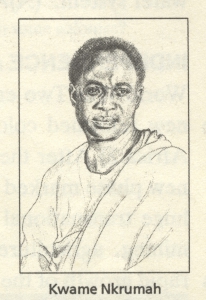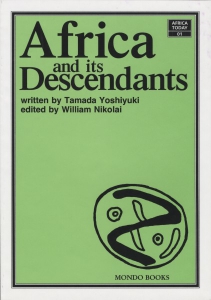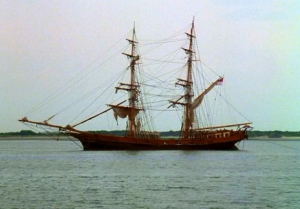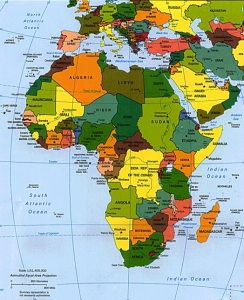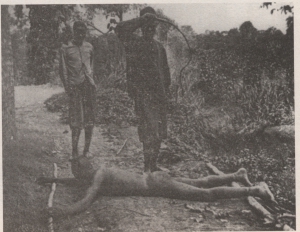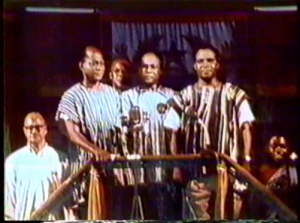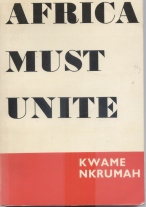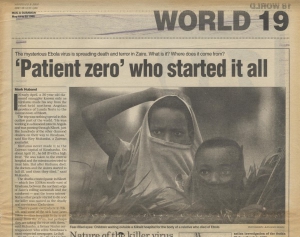アフリカ小史後半
概要
「加害者側にいながらその意識のかけらも持ち合わせていない現状を」語るために書いた英文のアフリカ小史の後半の紹介です。
前回はヨーロッパ人がアフリカ大陸に来る前のアフリカと奴隷貿易を中心に書いた内容の概略と日本語訳をつけた英文を紹介しましたが、今回はその続きアフリカ小史の後半で、奴隷貿易での富の集積→産業革命→工業化→植民地争奪戦→植民地分割→本格的な植民地化→二つの世界大戦→新植民地化の流れを追いました。
本文
アフリカ小史後半
およそ三世紀半に及ぶ奴隷貿易によって社会は大きく変りました。かつてない規模で西アフリカから少なくとも900万人、多ければ5000万人の人が新大陸に運び込まれたわけですから当然ですが、最大の変化は奴隷貿易によって資本がヨーロッパに集積され世界的な富の偏りが出来てしまったことです。つまり、ヨーロッパが豊かになり、アフリカを含む「第三世界」が貧しくなったということです。今の「先進国」と「開発途上国」との格差の原型です。そして今もなお、その経済格差はなくなってはいません。つまり、搾取構造が形を変えて今も温存されているということです。
ヨーロッパ社会は、奴隷貿易で蓄積された富を使って産業革命を起こし、効率よく手っ取り早くのし上がるために、生産の手段を手から機械に変え工業製品の大量生産を始めました。また、侵略を容易くするために武器の開発にも力を注ぎました。世界は農業中心から産業中心へと変貌してゆきます。
産業化によってさらに生産を拡大するための安価な原材料と労働力が必要となり、供給源として一番近いアフリカ大陸がまたも餌食となりました。植民地争奪戦です。争奪戦は熾烈で世界大戦の危機も出て来ましたので、戦争を回避するために1885年前後にベルリンで会議が開かれて、植民地の取り分が決められました。植民地分割で、イギリスの取り分が一番多く、他をフランス、ドイツなどで分けました。強制労働なども含めあからさまな植民地化が行われた地域もあり、ベルギーのレオポルド2世の「コンゴ自由国」での蛮行は有名です。
世界大戦と新しい支配体制
しかし、ヨーロッパ社会は大戦を回避出来ずに二度も殺し合いをして総体的な力を低下させ、虐げられて来た側には権利を取り戻す機会が巡ってきました。アジア、アフリカ諸国などでは独立運動が、アメリカ国内では公民権運動が繰り広げられました。
50年代、60年代はアジアやアフリカにとっては希望の年月でしたが、結局は大戦の傷を癒した旧宗主国と、大戦では無傷のうえヨーロッパ諸国に金を貸したアメリカと、そのアメリカと戦って無条件降伏しながらも経済復興を果たして高度経済成長の時代に突入した日本が力を合わせて、新しい形の支配体制を再構築する結果に落着きました。開発と援助の名の下の、多国籍企業による経済、軍事支配です。
搾取して甘い汁を吸い続けてきた側が、そう容易く既得権益を手放すわけがありません。あらゆる手段を使って権益を守りました。
ヨーロッパやアメリカで教育を受けた知識人が先頭に立ってアフリカで独立運動を始めた時、ヨーロッパ諸国は押さえつけようとしましたが、自国の復興に手一杯で押さえ込むことが出来ませんでした。そこで独立の過程を出来る限り妨害して独立後の混乱を引き起こし、クーデターによる軍事介入を強行するという作戦に切り換えました。
どの国も似たり寄ったりの経過を辿りますが、1957年に独立したガーナ(イギリス領ゴールドコースト)と60年に独立したコンゴ(ベルキー領コンゴ)は、典型的な経緯を辿りました。
「模範的な」植民地だったゴールドコーストでエンクルマに率いられた独立運動の機運が高まった当初、イギリスは押さえ込みにかかってエンクルマを投獄しますが、自国の復興で手一杯だったために押さえ込めず、仕方なく戦略を変えてエンクルマを釈放しました。その後1957年にエンクルマはブラックアフリカでは最初の首相に選ばれ、就任式では大陸の統一を夢見て涙を流しました。しかし、復興を果たしたイギリスはエンクルマがベトナム戦争の終結に向けて中国で毛沢東と会談をしている間に軍事クーデターを画策、エンクルマは帰国を果たすことなく1972年にルーマニアで亡くなりました。
クワメ・エンクルマ(小島けい画)
ベルギー領コンの場合は、もっと悲惨な結果となりました。ベルギーは首相に選ばれたルムンバが国を引き継ぐのに半年の猶予期間しか与えず80000人の官吏を総引き上げして独立の過程をあからさまに妨害しました。当然のことながら、独立後の国内は大混乱、そこにアメリカがモブツを引っ張り出して軍事クーデターを画策、命の危険を感じたルムンバは国連に援軍を頼みますが、
国連軍はルムンバが死ぬのを見守っただけでした。アメリカ大統領がCIAにルムンバの暗殺命令を出したと言われています。
パトリス・ルムンバ(小島けい画)
他のアフリカ諸国も同じように旧宗主国やアメリカ、日本に大幅な経済介入を許して、開発と援助の名目の、多国籍企業による搾取体制に組み込まれていきました。もちろん経済格差がなくなることはなく、むしろ広がってゆくばかりです。奴隷貿易、植民地時代に引き続いて、アフリカは貧困や病気、飢饉や民族紛争などに悩まされ続けています。
そういった大きな流れを書きました。
アフリカ小史の後半では、アフリカ争奪戦→アフリカ分割→植民地化→世界大戦→独立→新植民地化の流れに絞って英文で書きました。日本語訳もつけた全文です。
『アフリカとその末裔たち』
Chapter One: The Colonization of Africa 1章 アフリカの植民地化
MONOPOLY CAPITALISM AND IMPERIALISM 独占資本主義と帝国主義
The European capitalists used the profits from the slave trade and from slave labour in the mines and plantations in America to develop their own industries. Gradually the industrial capitalists grew more powerful than those capitalists who invested in trade.
ヨーロッパの資本家連中は、奴隷貿易とアメリカの大農園や鉱山での奴隷労働からの利潤を自らの産業開発のために利用しました。産業資本家がやがては奴隷貿易に投資する資本家よりも力を持つようになりました。
While the slave traders and the plantation owners wanted to keep slavery, the industrial capitalists’ main interest was to buy workers on a 'free labour market.’ They could abolish slavery. The capitalism of free competition was turning into monopoly capitalism.
奴隷船(「ルーツ」より)
奴隷商と荘園主は奴隷制度を維持しようとしましたが、産業資本家の関心は、「自由労働市場」で労働者を買うことにしかありませんでした。産業資本家は奴隷制度を廃止することが出来、自由競争の資本主義は独占資本主義へと変容して行きました。
A tremendous development of the productive forces was made with the result that the industries produced more goods than could be consumed, they produced more goods than people could afford to buy. Consequently, the industrialists had to look for new markets.
Capital export, i.e. investment abroad, become particularly important to monopoly capital. The capitalists were also looking for raw materials for industrial production, and new markets for their products.
生産力がとてつもなく増えて、産業が消費能力、購買能力を超えた商品を生産する事態に陥りました。結果的には、産業資本家が新しい市場を探さざるを得なくなったのです。
独占資本にとって、資本の輸出、海外投資が特に重要になりました。資本家は工業生産のための安い原材料と、製品のための新しい市場を探していました。
THE COLONIAL DIVISION OF AFRICA アフリカの植民地分割
The European states set out to conquer the rest of the world as colonies. These colonies became the protected hunting ground for each mother country’s own capitalist class. At the beginning of the 20th century, except for only Ethiopia and Liberia, the whole of Africa was divided between the imperialist powers.
ヨーロッパ諸国は、残りの世界を植民地として征服する作業に取り掛かり始めました。植民地はそれぞれの宗主国の資本家階級が狩りをするための保護区となりました。20世紀初頭には、エチオピアとリベリアを除き、帝国主義列強の間でアフリカ全体が分割されました。
The ruling classes in Europe hoped that the acquisition of colonies would calm the social unrest in their own countries. The competition for colonies became so fierce that war was threatened between the imperialist powers. But a common interest in exploiting the colonized peoples and the fear of a rising working class in their own countries won over the contradictions of the imperialists. To solve the problem of competition they sat down to negotiate. A war was postponed until 1914, and then it led to a redistribution of the colonies.
At the so-called Berlin Conference in 1884-85 Africa was formally divided between the colonial powers: England, France, Germany, Belgium, Italy, Portugal, and Spain.
ヨーロッパの支配者階級は、植民地を獲得することで自国の社会不安が鎮められればと考えていました。植民地争奪戦はとても激しかったので、帝国主義列強の間で戦争が起こりそうになりました。しかし、植民地の人々を搾取するという共通の関心と、台頭する自国の労働者階級への恐れがあったために、帝国主義者が抱えていた矛盾を押さえ込む形となりました。争奪戦問題を解決するために、帝国主義者達は交渉のテーブルに着きました。戦争は1914年まで延期され、結果的に植民地を再配分することになりました。所謂1884年、1885年のベルリン会議で、アフリカは正式に植民地列強(英国、仏蘭西、独逸、ベルギー、伊太利亜、ポルトガル、スペイン)の間で分配されました。
COLONIALISM コロニアリズム(植民地主義)
After the Berlin Conference the process of actual occupation and military domination had to be carried out. In a few cases there was only weak African resistance to colonial occupation, mainly because in some areas it was the custom for Africans to welcome all strangers. It was only later that they understood that the colonialists had anything but peaceful purposes. In most cases colonization met fierce resistance and led to terrible persecutions, and sometimes to outright genocide.
コンゴ自由国(「アフリカシリーズ」より)
ベルリン会議の後、西洋列強は実際に植民地を占領し、軍事的に支配を推し進めなければなりませんでした。植民地占領に対してアフリカ人のかすかな抵抗はありましたがそれもほんの僅かでした、理由は主に、アフリカ人には知らない人でも喜んで受け入れるのが慣わしだったからです。植民地支配に携わる人たちに平和的意図などかけらもなかったと知ったのは、後になってからに過ぎませんでした。たいていの場合は、植民化は激しい抵抗に遭い、その結果、恐ろしい迫害に及んだり、徹底的な大量虐殺につながる場合もありました。
In order to obtain labour for plantations and mines set up and owned by the colonizers and obtain cash for the colonial administration, the colonial powers introduced forced labour, compulsory cultivation of export crops and various forms of taxation. In order to be able to pay taxes, and also gradually to be able to buy the European manufactured goods which began to flood Africa, the adult men from the villages worked for the colonialists part of the year. The migrant workers who were forced into a capitalist monetary economy on short-term contracts were not given the chance to learn new skills. They were used as unskilled manual labour on the plantations and the mines, and when their contract ended they could be replaced by others. The wages they received were not enough to support the whole family which had to remain in the village to earn their own living.
植民地の人達が設立し、所有する農場や鉱山での労働力を手に入れ、植民地行政のための資金を得るために、植民地列強は強制労働や、輸出用作物の強制栽培や、様々な形式の課税を導入しました。税が払えるように、またやがてはアフリカに溢れはじめたヨーロッパの工業製品が買えるように、村から出稼ぎにきた男たちは、一年の大半を植民地主義者のもとで働きました。短期契約の形で資本主義貨幣経済の中に組み入れられた出稼ぎ労働者は、新しい技能を学ぶ機会も与えませんでした。農場や鉱山で非熟練の単純労働者として使われ、契約が終われば、いつでも別の労働者に交代させられました。受け取る給料はわずかで、生計をたてるために村に残っている家族全員を養うことはできませんでした。
南アフリカヨハネスブルグ金鉱山(「ディンバザ」より)
In many colonies the inhabitants were forced to grow crops for export instead of, as before, for their own living. In other areas, land was taken over for plantations and run by European settlers who hired the now landless peasants as their agricultural workers, often only for a short season. Agricultural production concentrated on growing one single crop is called monoculture. When the prices paid by these capitalist countries for agricultural products fell, so did the income that African countries could get for their export.
多くの植民地では、住民は、以前のように自らの生活のためではなく、輸出用作物の栽培を強いられました。他の地域では、土地が取り上げられて農場となり、たいていは短期契約の農業労働者として無産者を雇うヨーロッパ入植者によってその農場は経営されました。一種類の作物だけを育てる農業生産は単一耕作と呼ばれます。資本主義国が農産品に払う価格が下落すれば、アフリカの国々が輸出から得る収益も減少しました。
<Reference 2> <引用 2>
Kwame Nkrumah, the first prime minister of Ghana, wrote in his autobiography about the British colonial administration of this time:
ガーナの初代首相クワメ・エンクルマは自伝の中で、この時のイギリスの植民地政庁の行なった行政について次のように書きました。
“In all the years that the British colonial office administrated this country, hardly any serious rural water development was carried out. What this meant is not easy to convey to readers who take for granted that they have only to turn on a tap to get an immediate supply of good drinking water. This, if it had occurred to our rural communities, would have been their idea of heaven. They would have been grateful for a single village well or standpipe.
イギリスの植民政庁がこの国を統治していた間じゅう、地方の水の開発は殆んど行なわれませんでした。これが何を意味するかを、蛇口をひねるだけですぐに良質の飲料水が得られるのが当たり前だと思っている読者に伝えるのは難しい。もし田舎の村でそういったことが起こっていたとしたら、みんなは天国だと思ったでしょう。村に一つでも井戸か配水塔かが作られていたとしたら、みんなはどれほど有り難いと思ったでしょう。
As it was, after a hard day’s work in the hot and humid fields, men and women would return to their village and then have to tramp for as long as two hours with a pail or pot in which, at the end of their outward journey, they would be lucky to collect some brackish germ-filled water from what may perhaps have been little more than a swamp. Then there was the long journey back. Four hours a day for an inadequate supply of water for washing and drinking, water for the most part disease-ridden!
いつものように、暑くて蒸し暑い田んぼでのきつい仕事を終えて、男も女も村に戻り、それから手桶やかめを持って2時間もとぼとぼと歩かねばならず、その行き着いた先では、沼と言えるかどうかも分からないような所から、塩気のある細菌だらけの水でも手に入れば幸運だったのです。それからまた、長い道のりを戻らなければなりませんでした。洗濯や飲むための水を手に入れるのに1日に4時間、それも大抵は病気の元になる水を。
This picture was true for almost the whole country and can be explained by the fact that water development is costly and no more than a public service for the people being administered. It gave no immediate prospect of economic return. Yet a fraction of the profits taken out of the country by the business and mining interests would have covered the cost of a first-class water system." (Africa Must Unite)
こうした状況は、国じゅうで殆んど同じで、それは、水の開発には費用がかかり、その開発が統治する人々のための公共事業に過ぎず、経済的な見返りをすぐに期待出来る見通しが立たなかったからに過ぎません。しかし、事業や採掘投資で得られた利益をほんの僅かでも使えば、一等級の給水施設の費用は充分にまかなえたでしょう。(『アフリカは統一する』)
『アフリカは統一する』
INDEPENDENCE AND NEO-COLONIALISM 独立と新植民地主義
World War Two ended with building directed towards building a new reformed colonialism, or neo-colonialism. (See Appendix Africa 2) After the war, the world capitalist economy entered a new phase marked by the dominance of the USA and the rise of huge transnational corporations. Capital investment in African mining, agriculture, and industries increased, which led to the rapid growth of the African working class.
第二次世界大戦が終わり、新たに形を変えた植民地主義、つまり新植民地主義の構築に向けて事態は動き出しました。(付録アフリカ2を参照)戦争後、世界資本主義経済は、アメリカの優勢と巨大な多国籍企業の出現という特徴を持つ新しい局面を迎えました。アフリカの鉱業と農業と工業への資本投資が増加し、アフリカ人の労働者階級が急速に成長を遂げることになりました。
Landlessness and poverty led to the growth of large urban slums. Resistance began to take new forms as peasants and workers became organized. The middle-class nationalist movements changed their tactics to calls for national independence. In 1957 Ghana became independent as did many nations around 1960.
アフリカ人が土地を奪われ、貧困を余儀なくされたために、都市には巨大スラムが出来ました。小作人と労働者が組織化されるにつれて、新しい形態の抵抗が始まりました。中流階級の民族主義者たちの運動で、それまでの作戦が国の独立を求める運動に変わりました。1957年にガーナが独立し、1960年頃には多くの国が独立を果たしました。
The post-war world created a new world order in which imperialism no longer had a part to play. The power of American capital and the new transnational corporations called for the abandoning of the restrictions on trade and investment. It was the age of the United Nations. The European colonial powers began to question the increasing cost of maintaining their empires.
戦後の世界は帝国主義がもはや役割を演じることのないような新しい世界秩序を作り出しました。アメリカの資本力と新しい多国籍企業)は、貿易と投資への制限を撤廃るように求めました。国際連合の時代です。ヨーロッパの植民地列強)は、自分達の植民地帝国の維持費を増やすことに疑問を感じ始めました。
In the peasant-based colonies, and in other colonies where the settlers were weak, there took place a relatively easy transfer of power into the hands of the African elite. However, in other colonies where the settlers were able to hold onto political power (Algeria, Mozambique, Zimbabwe, and so on), independence was only won after long and bitter armed struggles. In most cases, the new independent governments inherited economic dependence. The dependence could be used by the imperialist forces to further their aims. It rests on a continued colonial division of labour and foreign control of key sectors of the economy. Colonialism destroyed the old society. Yet colonial regimes and their African allies did not push through the full capitalist transformation they had begun. Instead, they continued to get profits from the traditional economy and patch it up where it threatened to break down. Sooner or later, the system had to collapse.
小作人を基盤とする植民地と、入植者の勢力が弱かった他の地域では、比較的容易に、アフリカ人エリートへの権力移行が行なわれました。しかしながら、入植者が政治的実権を持ち続けていた他の植民地(アルジェリア、モザンビーク、ジンバブエなど)では、長く辛い武力闘争を経てはじめて独立を勝ち取ることが出来たのです。多くの場合、新しい独立政府は経済依存体制を引きずりました。その依存体制は、帝国主義者達が自分達の目的を更に拡大するのに利用されました。その体制は、引き続き行なわれた植民地列強による労働力の分配と、外国経済の重要な分野の支配を基盤にしています。植民地支配は古い社会を壊滅させました。
しかも、植民地政府とアフリカ人の盟友は、自分達が始めた完全な資本家主義への移行措置を強行しませんでした。代わりに、旧来の経済体制から利益を得、破壊の危機に瀕していた所を補修し続けました。遅かれ早かれ、その仕組みは崩壊する運命にあにありました。
Now Africa has so many problems, such as poverty, hunger, drought, racial conflicts, diseases and so forth. The 1994 massacre in Rwanda left us with a sense of desperation. In that racial conflict more than 500,000 people were slaughtered and more than 2 million were forced to flood into their neighbouring countries. The 1995 Ebola outbreak in Zaire spread fear around the globe. Furthermore, the AIDS situation is now devastating. The disease accounts for 300,000 deaths per year in sub-Saharan Africa, a rate that is expected to reach 900,000 in five years, according to the World Health Organization. Health officials reckon that AIDS began travelling 20 years ago down the transport routes from Central African countries.
1995年のエボラ出血熱騒動当時の南アフリカの週間紙「ラント・デイリー・メール」
The next target is South Africa where the peaceful transformation of power was made through the 1994 multi-racial election.
The colonial heritage is far too heavy for African countries to bear in all ways.
現在アフリカは、貧困、飢餓、干魃、人民族紛争、数々の病気など、非常に多くの問題を抱えています。1994年のルワンダの大虐殺は、私たちに絶望感を残しました。その民族紛争で、50万人以上の人たちが虐殺され、2百万人以上の人々が近隣諸国へ流れこみました。1995年のザイ―ルでのエボラ出血熱の発生は、世界中に恐怖を広げました。さらに、エイズの状況は現在、絶望的です。この病気はサハラ以南のアフリカでは、年間30万人の死者を出し、世界保健機構(WHO)によると、その割合は5年で90万人に到達するだろうと予測されています。エイズは、中央アフリカの国々からの輸送経路を20年前に下りはじめた、と世界保健機構の職員は考えています。
次の標的は、1994年に多人種による選挙が行なわれて平和理に権力移行を成し遂げた南アフリカです。
植民地時代の負の遺産は、アフリカの国々が全てを耐えるにはあまりにも重過ぎます。
次回は「南アフリカ小史前半」です。(宮崎大学医学部教員)
執筆年
2013年12月10日
収録・公開
→「アフリカ小史後半」(No. 64 2013年12月10日)
